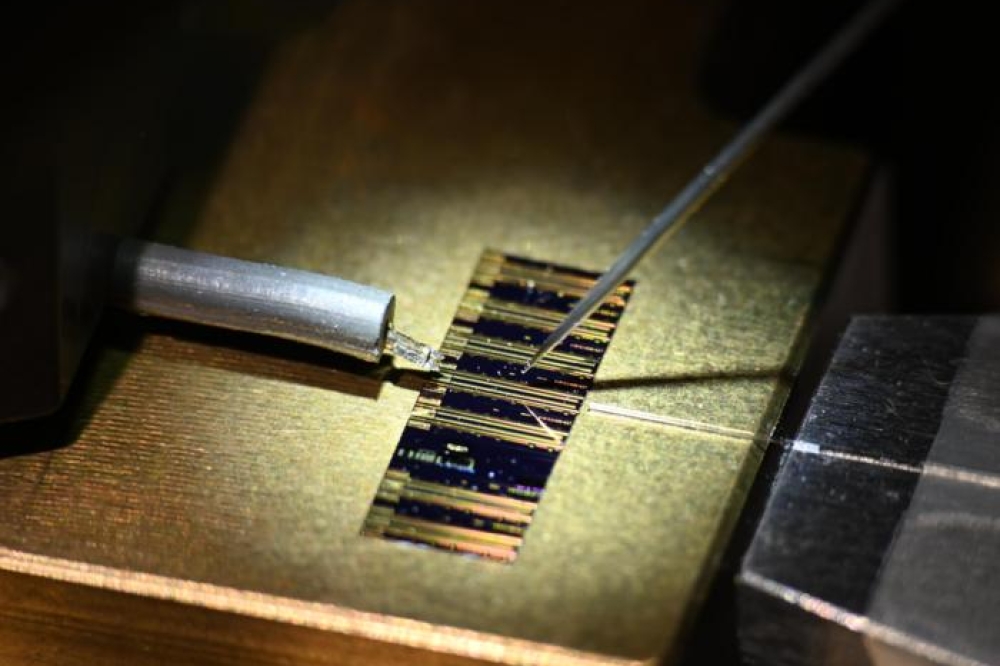News Article
Optical interconnects propelled by InP based VCSELs
Furukawa, OFS And Corning say they have increased reach and distance to benefit mega data centres
Furukawa Electric has developed a VCSEL that operates at 25 Gbps and realised transmission of up to 500 metres over prototype multimode fibres developed by OFS and Corning Incorporated.
"This is a significant accomplishment for data communications as both longer reaches and higher speeds are required for warehouse-scale data centres. Our customers are raising expectations as they implement next-generation data centres and we are pleased to be innovating the technology to meet and exceed those expectations," says Haruki Ogoshi, senior fellow of Furukawa.
The rapid growth of cloud computing and expansion of 'big data' is causing a dramatic increase in the volume of data handled in data centres. This has generated demand for greater throughput in servers, switches and routers in data centres. Increasing the serial speed of transmission of lasers and photo detectors is one approach to that end.
Also, there is a need to increase transmission distances between devices as data centres become larger. In mega data centres, for example, transmission distances of 300 m or longer can be required. At present, VCSELs at a wavelength of 850 nm are widely used for lowest cost optical interconnect.
However, many say that when the transmission speed is changed from 10 Gbps to higher-speed 25 Gbps, the transmission distance is limited to less than 200 m due to the influence of chromatic dispersion in multimode fibres.
In order to solve these issues, Furukawa has developed a VCSEL with a wavelength of 1060 nm that operates at 25 Gbps.
"Increasing the VCSEL wavelength from 850 to 1060 nm reduces chromatic dispersion of fibres by approximately two thirds," says Durgesh Vaidya, Senior Manager Research and Development for OFS.
"Accordingly, use of a multimode fibre with the modal dispersion minimized at 1060 nm reduces transmission impairments and allows transmission distances to be extended. It is widely expected that it will be easier to increase VCSEL speeds in the future beyond 25 Gbps by moving from 850 to higher wavelengths."
Furukawa created a prototype optical module integrating the newly developed 1060 nm VCSEL in a small package with a driver integrated circuit and then conducted a transmission experiment close to actual operating conditions. When a multimode fibre from OFS or Corning was used with the modal dispersion optimised for a wavelength of 1060 nm, a long-reach of 300 m was achieved.
In a joint experiment, a short length of modal dispersion-compensating fibre developed by Corning was used in conjunction with standard OM4 multimode fibre, and a transmission distance of 500 m was achieved.
These results were obtained without the use of electrical compensation technologies such as a clock data recovery or an error correction.
In this way, FEC's new VCSEL technology can allow for an increase in speed and distance without complicating future systems.
"This collaboration shows that long wavelength VCSEL technology can meet the demands of next generation data centres when combined with new, wavelength optimised fibre, or even standard OM4 fibre with new modal dispersion compensation fibre," says Alan F. Evans, research director, Optical Physics and Transmission Technology, Corning.
Details of this experiment will be presented at the Optical Fibre Communication Conference and Exposition to be held in San Francisco from March 9th to 13th at OFC/ NFOEC 2014, at Booth 4153.































